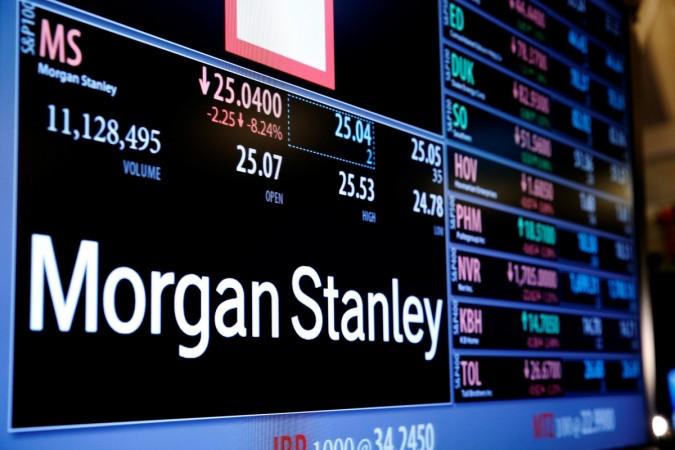
The Indian economy is expected to accelerate to 7.5 percent in 2018 from current 6.3 percent and further to 7.7 percent in 2019, suggesting that India is recovering from big economic changes like the Goods and Services Tax (GST) and demonetisation, according to the projections by Morgan Stanley.
A Morgan Stanley report suggests that corporate return expectations and balance sheet fundamentals are improving and a strengthening financial system should be able to meet investment credit demand, the Times of India reported.
"This sets the stage for a fully fledged recovery in 2018, and we expect real GDP growth to accelerate from 6.4 per cent in 2017 to 7.5 per cent in 2018 and further to 7.7 per cent in 2019," Morgan Stanley said in its research report.
The global financial services firm is also optimistic that India's private capital spending and demand conditions are gradually recovering after the new tax regime and cash ban has disrupted economic growth for a short term.
Last month, even Moody's Investors Services upgraded India's sovereign credit rating for the first time in 14 years due to continued progress on economic and institutional reforms that is pushing the country's growth potential.
The Indian economy also expanded 6.3 percent year-on-year in the third quarter of 2017, above 5.7 percent in the previous quarter, which was the lowest in the last three years.
According to the government, this growth suggests that the economy has shrugged off the impact of demonetisation and confusion spurred by the GST and also expects to close the year within the range of 6.75-7.5 percent.
![Narendra Modi at the the ceremony to launch the Goods & Service Tax (GST), in Central Hall of Parliament, in New Delhi on June 30, 2017. [Representational Image] gst, gst on services, gst service tax, service tax at 15%, gst service tax 18%, , india gdp, india gdp composition](https://data1.ibtimes.co.in/en/full/653467/gst-gst-services-gst-service-tax-service-tax-15-gst-service-tax-18-india-gdp-india-gdp.jpg?h=450&l=50&t=40)
"Growth this quarter indicates that perhaps the impact of two structural reforms is now behind us and hopefully, in the coming quarters, we can look at an upward trajectory. The most significant aspect is the fact that this quarter's positive result is impacted by growth in manufacturing," Finance Minister Arun Jaitley told reporters.
Following a stronger growth this quarter and rising inflation the Reserve Bank of India also kept its policy rate steady on Wednesday as widely expected.
The annual rate of consumer inflation increased in October to 3.58 percent, driven by higher food and crude oil prices. That is very close to central bank's 4 percent target.
The RBI on Wednesday also raised its inflation projection between 4.3 percent and 4.7 percent in the six months ending in March 2018.

















